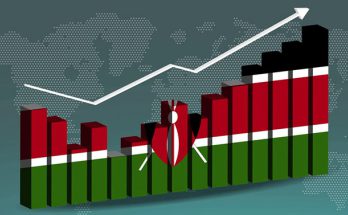 Finding the right customers in the African market can be a time-consuming process. Being such a large continent, with as many as 53 countries, marketing one’s products and services in African markets is indeed a challenging task. However, for a successful marketing effort, it is imperative to identify and associate with reliable and efficient business partners in key African countries. There are a number of ways to go about identifying potential trade partners. A good starting point is via an organisation that specialises in marketing and business promotion in the African markets. Such organsations have not only the necessary experience and expertise, but also the right contacts to help you in your marketing efforts.
Finding the right customers in the African market can be a time-consuming process. Being such a large continent, with as many as 53 countries, marketing one’s products and services in African markets is indeed a challenging task. However, for a successful marketing effort, it is imperative to identify and associate with reliable and efficient business partners in key African countries. There are a number of ways to go about identifying potential trade partners. A good starting point is via an organisation that specialises in marketing and business promotion in the African markets. Such organsations have not only the necessary experience and expertise, but also the right contacts to help you in your marketing efforts.
Another useful tool to search for business associates in African countries is the Internet. Although the internet is not as widely used in many African countries as it is in the developed world, it nevertheless provides you with an opportunity to search for your business counterparts in several African countries. Dedicated websites like the Africa Business Pages (www.africa-business.com) provide useful information for those looking for business contacts in the African continent. In fact, Africa Business Pages is the only Africa-related website that offers downloads of most African Business Directories that can help you directly contact your potential business partners in African markets. However, before you launch yourself into a “search-and-target” operation, here are some pointers that will help you understand the mechanisms of the African markets and help you choose the right business partner for yourself:
Manufacturer
Large industrial companies or specialist manufacturers will often purchase their requirements directly from producers. This is especially the case for specific machinery or equipment or for bulk users of raw materials.
Most industrial sectors in African countries are dominated by a few very large, diversified groups, although the current trend towards smaller, more focused groups of operating companies has seen the unbundling of many of these large corporations. These large companies are however very important, not only because of their size and diversity but because they are significant end-users of raw materials and capital inputs. Each group will have their own procurement systems to deal with imports and raw materials. This could be an in-house import department or the existence of an import company for the group that operates independently to supply the parent company and other customers. In addition to the large groups, there are numerous smaller manufacturing companies who may engage in direct procurement of certain raw materials and machinery.
Wholesaler
Where there is no specialist importer or distributor for your specific product, you may need to sell directly to a wholesaler who services your market. A wholesaler does not usually have exclusive selling rights. Wholesalers play a very important role in the distribution system in African markets, in particular in supplying independent retailers and informal operators. Certain larger wholesalers in Africa are also utilised extensively by retailers in neighbouring countries who will visit the wholesaler on a monthly basis to procure their requirements. For certain products, particularly in the food sector, the major importers also operate as wholesalers. A further feature of the wholesale sector is that the large wholesalers are often owned by one of the major retail groups.
Retail Chain
Large retail stores may also buy products directly from an overseas supplier. This is most often the case when there is exclusivity on a line such as a particular range of linen, clothing or kitchenware.
Of growing importance in the African market is the existence of house brands that  are manufactured specifically for a retailer under their own label. A number of house brands available in many African retail outlets are imported from Asian countries. A salient feature of the retail sector in Africa is that it operates within a very competitive marketing environment. As a result, a few large groups dominate the retail sector. For example, in South Africa there are four major retail groups that dominate the foodstuff business, accounting for well over half of the formal retail sector. In addition to the major chains and groups, there are a large number of independent retailers who cater to their own segments of the market.
are manufactured specifically for a retailer under their own label. A number of house brands available in many African retail outlets are imported from Asian countries. A salient feature of the retail sector in Africa is that it operates within a very competitive marketing environment. As a result, a few large groups dominate the retail sector. For example, in South Africa there are four major retail groups that dominate the foodstuff business, accounting for well over half of the formal retail sector. In addition to the major chains and groups, there are a large number of independent retailers who cater to their own segments of the market.
Once a list of potential partners has been identified using trade directories and other inputs, it is then necessary to contact each of the companies to assess their interest in doing business with you. It is advisable to get a specialist organisation to do this on your behalf, as the process can be very time-consuming. It is advisable to mail your company’s corporate brochure along with an indicative price list to your targetted business partners in Africa. An increasing number of companies are also using the internet to make contact with their business counterparts in many African countries. E-Mail marketing is thus emerging as a major tool in the promotion of direct trade. However, it is worth reiterating the value of an in-market visit to establish contacts with prospective partners.
As an exporter, you need to plan a visit to a market for a number of reasons. Initially this is an ideal way to meet potential importers of your product and to discuss conditions for payment and other business modalities. A visit to your targetted market also helps you to get an understanding of the way the market operates, what the market characteristics are, what your competitors are doing and  whether or not their product is going to compete in terms of quality and price. Lastly, since international travel is expensive, you need to plan your visit carefully so that you maximise your time in the market. However, before you finalise any agreement with an agent or distributor for your products in any African country you need to study a few things.
whether or not their product is going to compete in terms of quality and price. Lastly, since international travel is expensive, you need to plan your visit carefully so that you maximise your time in the market. However, before you finalise any agreement with an agent or distributor for your products in any African country you need to study a few things.
First and foremost, you need to appoint an agent who knows your market well. Most of the business sector in African countries is relatively small and companies have established methods of procurement that differ from one sector to another. One tends to find that there are relatively few agents who serve a particular sector on an exclusive basis, but, because they are well established within the sector, they deal in many other sectors. For instance, a reputed foodtuff importer in Uganda may also be a major importer of automobile spare parts like tyres, batteries and ball bearings.
You also need to consider the aspect of regional distribution. Africa is a large continent with as many as 54 countries. The smaller agents will tend to operate provincially, as they do not have the infrastructure or the wherewithal to support operations in other provinces or countries. If you decide to go this route you may need to appoint an agent in each of the larger cities in order to cover all the major provinces. The larger companies who take on agencies will often have an office in each of the major cities in the region thereby making any agency agreement easier to control.
For certain products and services countries like Kenya, South Africa, Ivory Coast are known as trading hubs for their respective regions. You need to consider whether your African agent should handle business in the entire region on your behalf or whether he should concentrate on his country alone.
SOME SUGGESTIONS
• Understand the areas of need and high profit. Consult with the Chamber of Commerce, the Embassy, or traders in the country of your interest.
• Educate yourself about Africa from sources other than the Discovery Channel.
• Get information about your business interest from Chambers of Commerce or business consultants.
• Develop a sound business and marketing strategy.
• Identify reliable business partners in Africa either by yourself or through the Chamber of Commerce or the relevant Embassies.
• Visit the location if you intend to establish a company or an outlet.
• Follow up on every arrangement to make sure that conditions and terms are fully understood and are being implemented.
• Arm yourself with a lot of patience and keep an open mind because communication and correspondence from Africa may not flow as smoothly or as fast as you may expect.
• Understand the cultural environment of the African country in which you intend to do business.
• Use a consultant, especially those that have a real understanding of Africa. Be mindful of the three Ps of African business: Pensiveness, patience, and perseverance. Pensiveness demands the use of common sense. Success demands a lot of patience. Above all, you must persevere and be persistent but polite.
• Lucrative as it may be, the African market is not without pitfalls. Keep your guard up and insist on cash transactions as far as possible.
• Establish direct contacts with your business counterparts in Africa by participating in trade fairs and exhibitions like the forthcoming 3rd AFRO BUSINESS TRADE FAIR which is being held in Kampala, Uganda just before Christmas season.
- Participate in THE 15TH KENYA INTERNATIONAL TRADE EXHIBITION http://expogr.com/expokenya/
Major categories of this event are:
- Autmotive
- Building & Construction
- Medical & Healthcare
- IT & Telecom
- Printing & Packaging
- Food & Hotel Supplies
- Plastics & Rubber
- Industrial Machinery
- Consumer/ Household




Comments are closed.